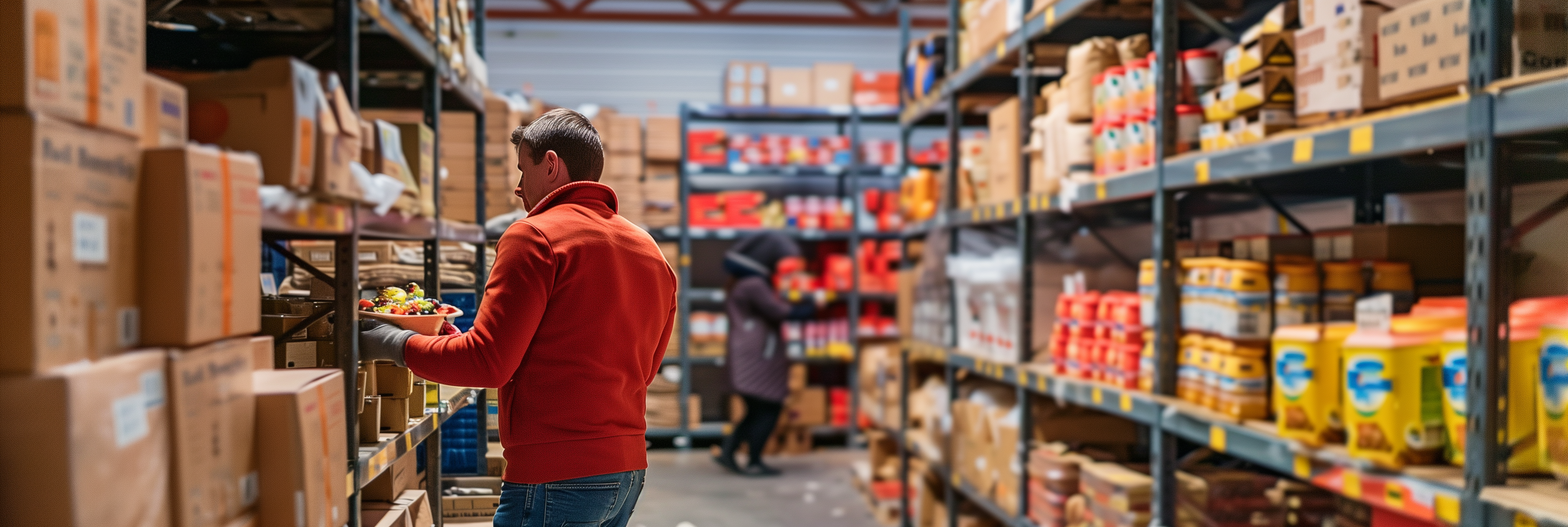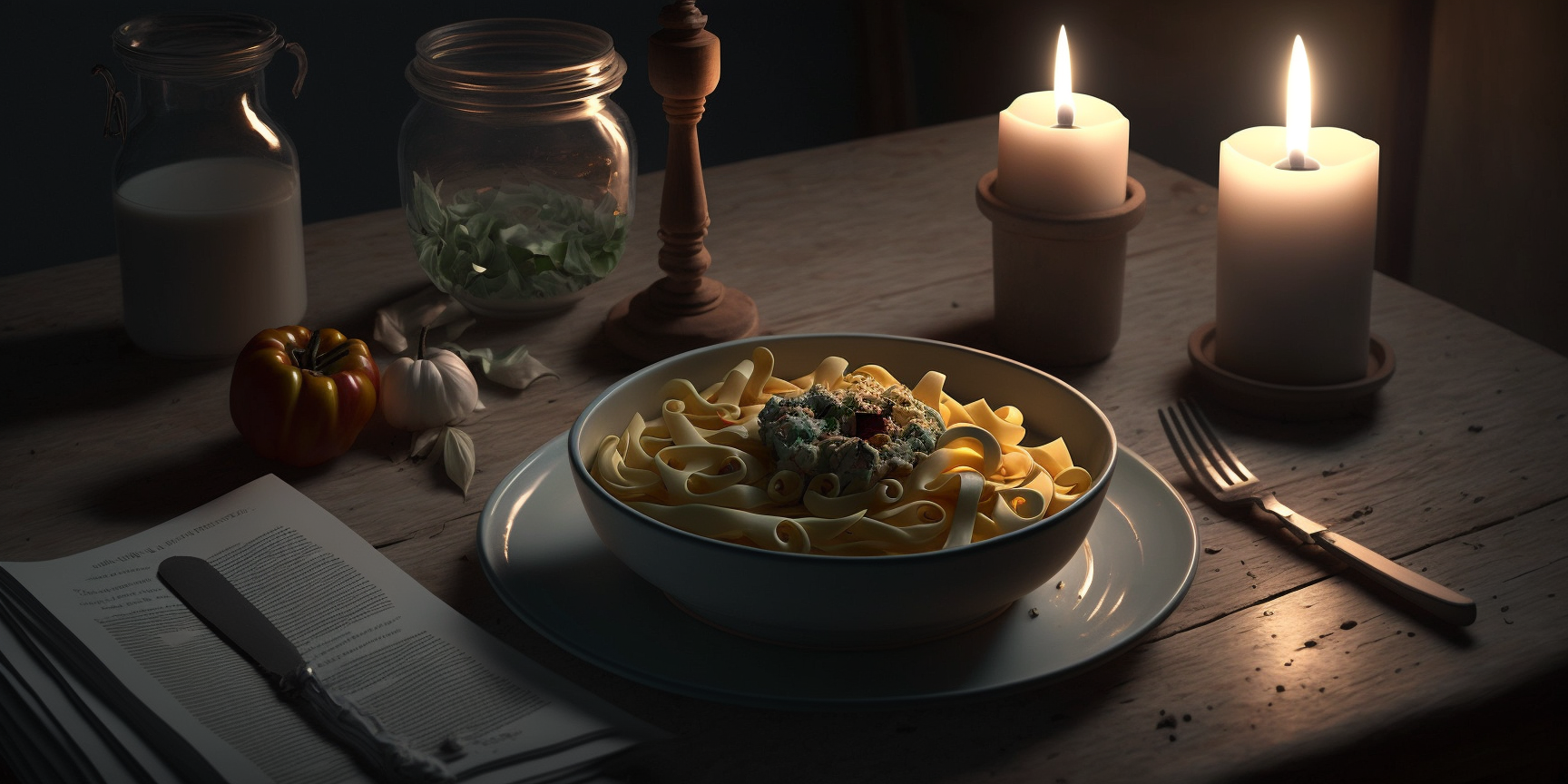
Emergency Food for Special Dietary Needs: Gluten-Free, Vegan, and More
Emergency Food for Special Dietary Needs: Gluten-Free, Vegan, and More
Emergencies can happen at any time, and it's essential to be prepared with an emergency food supply. For those with special dietary needs, such as gluten-free or vegan diets, planning ahead can be particularly crucial. By planning ahead, you can ensure that you have the food you need to stay healthy and nourished during an emergency.
In this article, we'll provide some tips and tricks for creating an emergency food supply that meets your dietary needs.
Gluten-Free Emergency Food: A Guide for Those with Celiac Disease or Gluten Sensitivity
In the UK, an estimated 1 in 100 people have celiac disease, a condition that requires a strict gluten-free diet. For those with celiac disease or gluten sensitivity, having a gluten-free emergency food supply is essential. Some good long-life ambient options include gluten-free pasta, rice, beans, and canned fruits and vegetables. Look for gluten-free snacks and treats to help boost morale during an emergency.
Emergency Food for Vegans: Tips and Tricks for Staying Nourished in an Emergency
According to a study by the Vegan Society, the number of vegans in the UK has quadrupled over the past five years, with an estimated 600,000 vegans in the country in 2020. For vegans, creating an emergency food supply can be a bit more challenging, but it's still possible. Look for non-perishable items such as canned fruits and vegetables, legumes, and grains like rice or quinoa. Nut butters and seeds are also good sources of protein and healthy fats.
Emergency Food for Vegetarians: Plant-Based Protein Sources to Include in Your Stockpile
Vegetarians can benefit from including plant-based protein sources in their emergency food supply. Some good options include canned beans, lentils, and chickpeas. Look for high-protein grains like quinoa and consider including plant-based protein bars or shakes for a quick, easy source of protein. There are also many specialist freeze-dried meals designed specifically for vegetarians, ensuring that you have access to convenient, easy to make meals in an emergency.
Emergency Food for Diabetics: What to Include in Your Stockpile to Manage Blood Sugar
In the UK, an estimated 3.5 million people have been diagnosed with diabetes, a condition that requires careful management of food consumption. For diabetics, managing blood sugar levels during an emergency is crucial. Look for non-perishable items like canned fruits and vegetables, lean proteins, and high-fibre grains like quinoa or brown rice. Avoid high salt and high-sugar snacks and treats and make sure to include any necessary medications or supplies in your emergency kit.
Emergency Food for those with Allergies: How to Stay Safe and Nourished in an Emergency
According to the NHS around 2% of adults and 8% of children in the UK have a food allergy which equates to approximately 2 million people. For those with allergies, it can be more challenging to find trustworthy foods during an extended crisis - when food supply chains breakdown, alternative foods may need to be consumed, which may not follow the correct labelling rules. When building your emergency food supply always look for non-perishable options, including canned fruits and vegetables, meats, and grains. Make sure to avoid any foods that may trigger an allergic reaction and include any necessary medications or supplies in your emergency kit.
Note that further details on food allergies can be found here.
Nut-Free Emergency Food: Tips for Storing Food Safely and Avoiding Cross-Contamination
Nut allergies are amongst the most common food allergies, although it often depends on the type of nut. Peanuts are one of the most common types of nuts that people are allergic to (although they are actually not a true nut but a legume). In addition to peanuts, tree nuts such as almonds, cashews, hazelnuts, pecans, pistachios, and walnuts are also common allergens. However, individuals can be allergic to any type of nut or seed, and it's important to take appropriate precautions when planning an emergency food supply for those with nut allergies.
For those with nut allergies, it's important to store emergency food safely to avoid cross-contamination. Look for nut-free options, including canned fruits and vegetables, canned meats, and non-perishable snacks like crackers or popcorn. Store your food in airtight containers and label everything clearly to avoid any confusion.
Stocking up on Emergency Food for Babies and Young Children with Special Dietary Needs
For babies and young children with special dietary needs, it's important to plan ahead and stock up on appropriate food items. Look for non-perishable options like long shelf-life baby food, formula, and toddler-friendly snacks. Make sure to include any necessary feeding supplies, such as bottles or pacifiers, in your emergency kit.
Emergency Food for the Elderly: Considerations for Stockpiling Nutritious Meals
For the elderly, it's important to consider nutritional needs when planning an emergency food supply. Look for items that are easy to open and prepare, such as canned soups, meats, and fruits. Also, consider including nutrition shakes or bars for a quick and easy source of nutrients. Remember that elderly people can really struggle with fiddly packaged products or following instructions with very small text - bear this in mind when selecting foods.
Tips for Customizing Your Emergency Food Supply to Meet Your Specific Dietary Needs
When planning your emergency food supply, it's important to customize it to meet your specific dietary needs. Consider consulting with a dietician to help you develop a plan that is safe, healthy, and meets your specific needs. Also, make sure to update your emergency food supply regularly to ensure that you always have fresh, in-date, nutritious options on hand.
Final Thoughts
Creating an emergency food supply that meets your family's special dietary needs can be a challenge, but it's essential for staying healthy and nourished during an emergency. By planning ahead and customizing your stockpile to meet your unique requirements, you can ensure that you have the food you need to stay safe and healthy during an emergency.
Suggested Articles
Emergency Food for Low-Income Individuals: Access and Affordability in Times of Crisis
During times of crisis, securing basic necessities becomes a challenge, with food security becoming an urgent concern...
Prepping for Emergencies with Children: A Comprehensive Guide for UK Families
How to Keep Your Family Safe, Informed, and Ready for Any Emergency Introduction Emergencies can happen at any time, ...
Emergency Food Supply for Multi-Day Power Outages: A Comprehensive Guide for UK Residents
Power outages can strike at any time, and with an increasing demand for electricity and a more volatile climate, the ...




